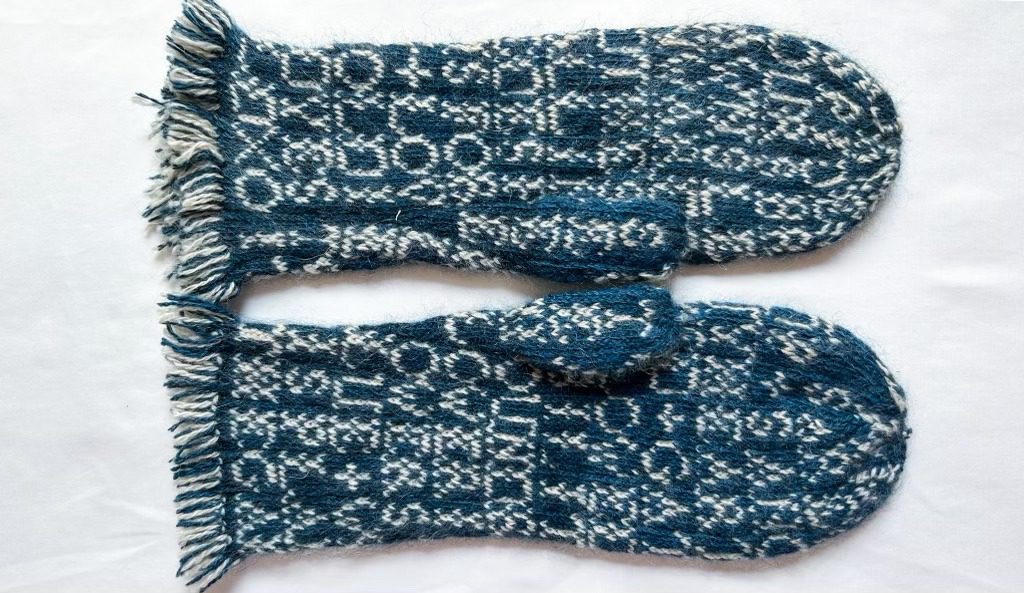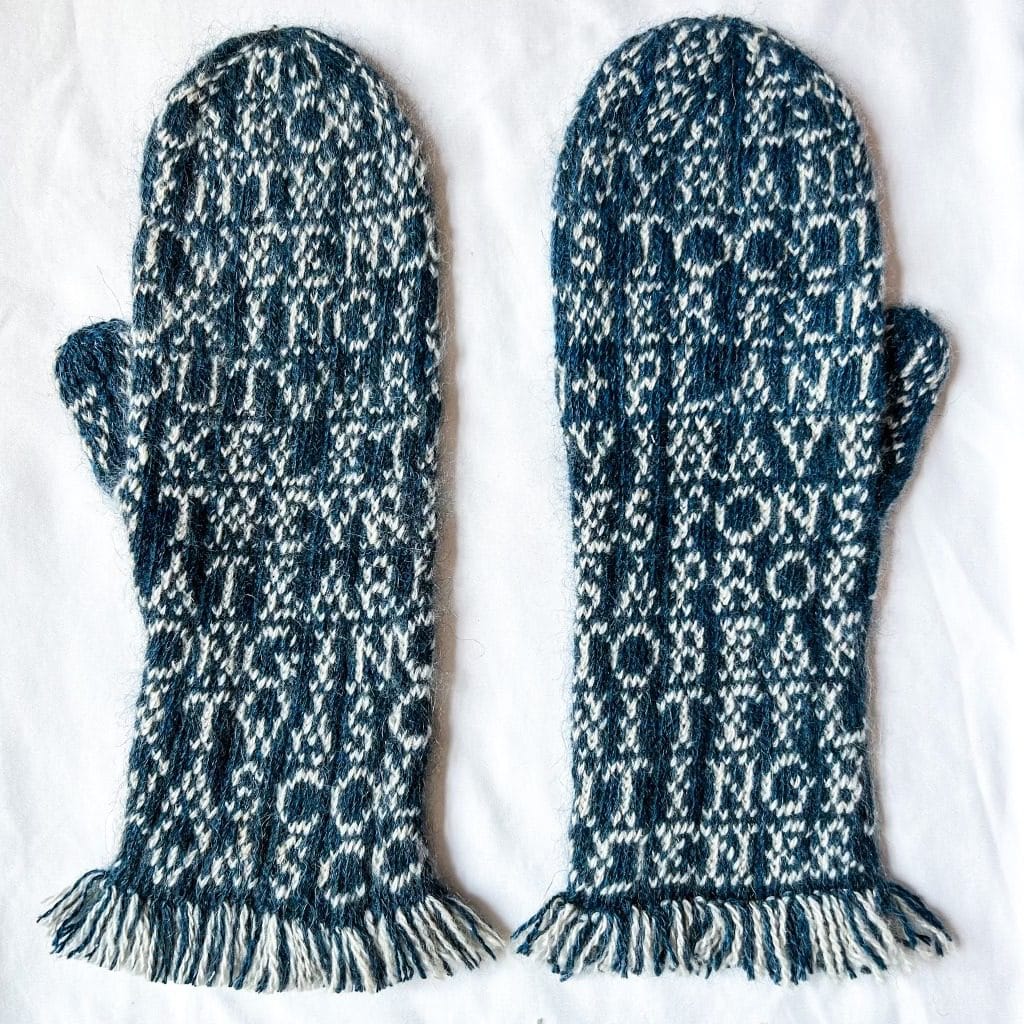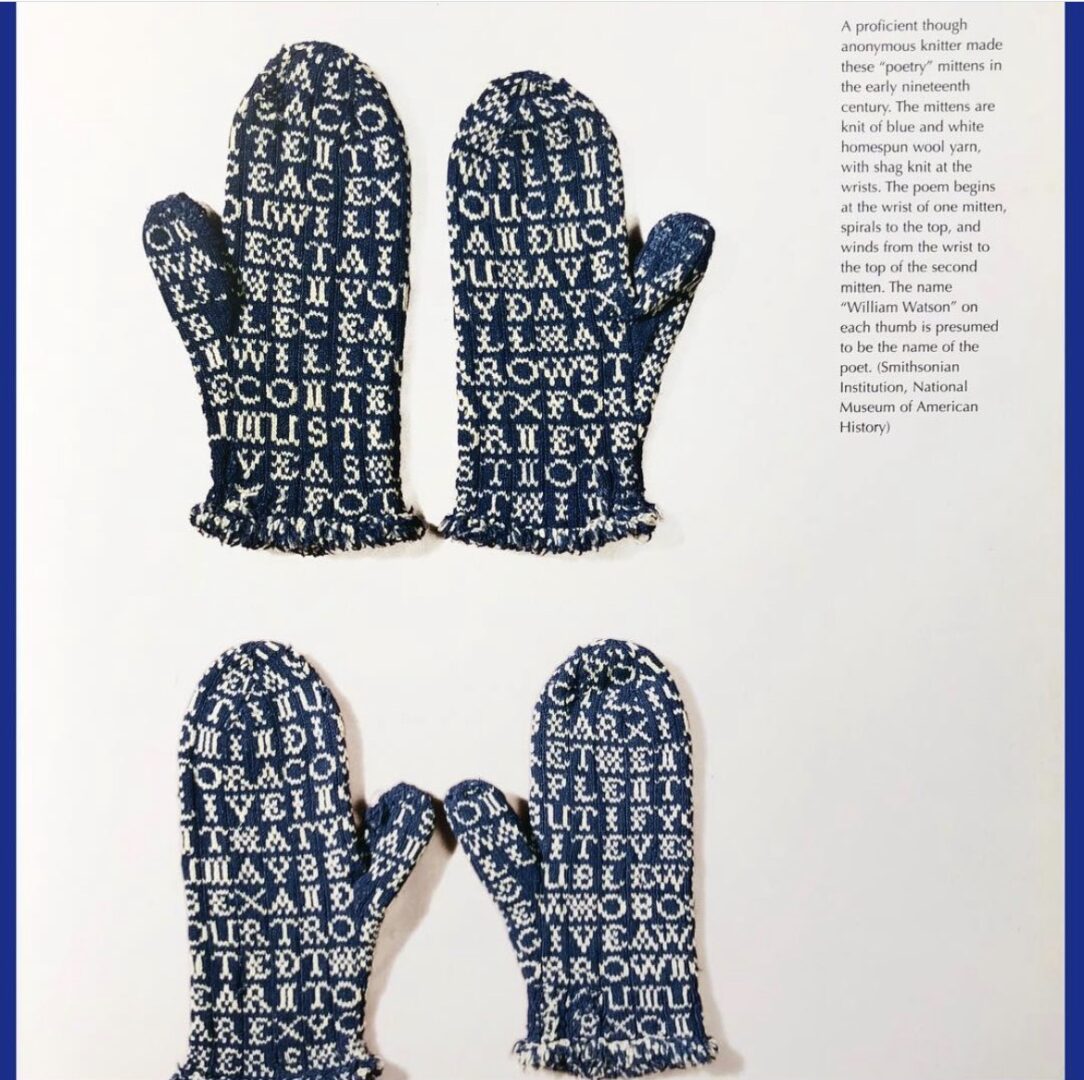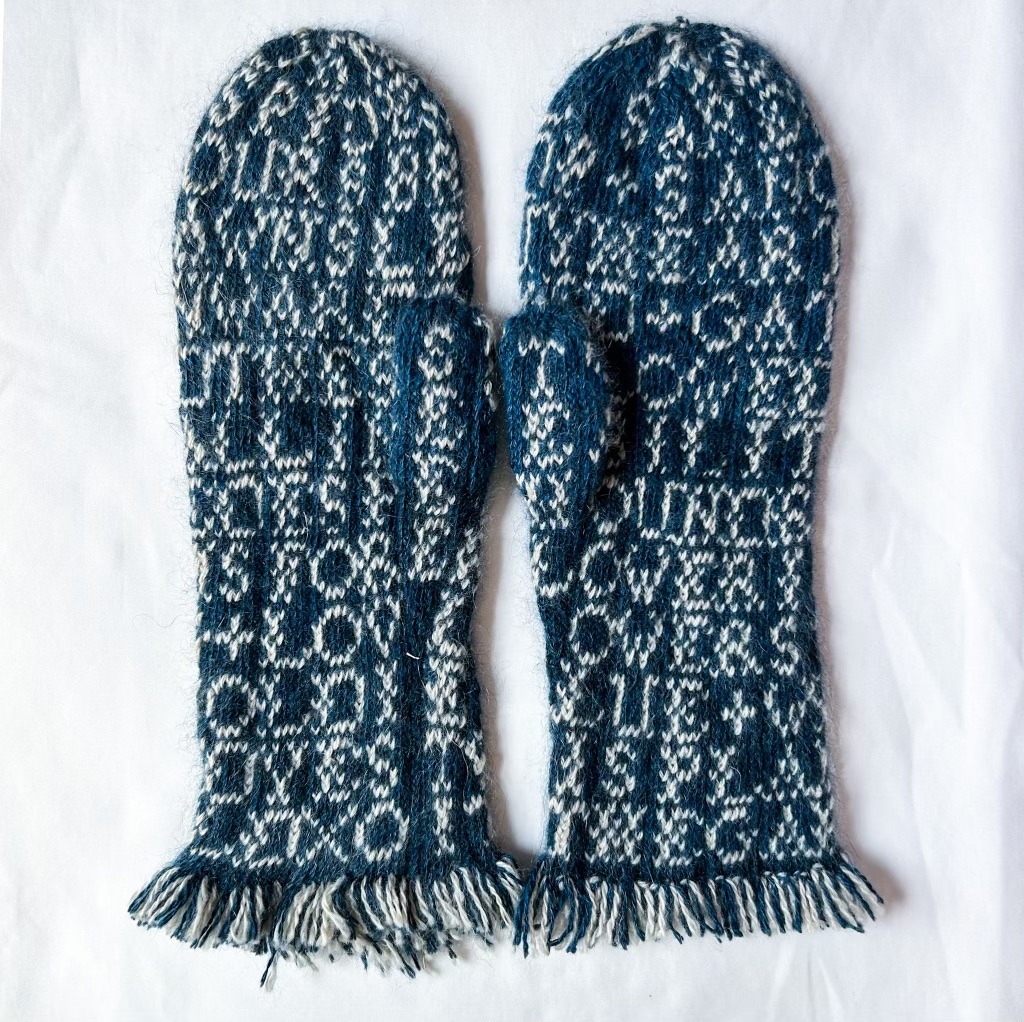
Is there any work more intimate than a handmade item of clothing? Hours of handiwork spent using your hands to shape something which will enfold your body or the body of someone you love, something made to fit our taste and our shape as perfectly as possible. As New York shifts almost overnight from the suffocating summer to chilly autumn, it is once again time to start thinking about what we might make to keep warm through the winter. We hope that you will join us at Tatter for our first ever ‘mitt-a-long’ and make a pair of poetry mittens!

Our poetry mittens are based on early nineteenth century blue and white homespun mittens in the Smithsonian collection. The original set read: “One thing you must not borrow nor never give awayXFor he who borrows trouble will have it every dayXBut if you have a plenty and more then you can bearXIt will not lighten yoursXXif others have a shareXYou must learn to be contented then will your trouble ceaseXAnd then you may be certain that you will live in peaceXFor a contented mind is a continual feast.” The thumbs spell out the name “William Watson.”
Both the maker and the wearer of these mittens are something of a mystery: according to the Smithsonian museum, the mittens themselves were knit in the United States but the poet, presumably William Watson, seems to have been a London printer of penny papers. These ‘penny papers’, which Watson published from 1805 to 1830, each contained a woodcut, a story, and a poem of roughly the same length and tone as the poem found on the mittens.

Over the course of the last few months, I have spent hours upon hours studying photographs and scans of the Smithsonian poetry mittens and writing a workable pattern. While there is still so much that we don’t know about the mittens and their maker, it is clear that whomever made these mittens over two centuries ago was a skilled artisan. The tension of the yarn is uniform, the stitches tiny, the construction nimble and adaptive, very likely made up as the maker went along. These were almost certainly made without a formal pattern; the increases and decreases are irregular, placed for ease of reading the letters rather than following a typical mitten structure. The cuff, rather than having a rib or stretchy bind off, is a shag knit– an uncommon technique which is mentioned in an American diary as a “new Mode of Knitting” in 1803. They are playful, experimental, and timeless and we wanted to be able to offer everyone an opportunity to knit them along with us in Tatter’s first ever Mitt-A-Long which we are hoping to kick off at the beginning of December.
When it came to the poem, however, we wanted to choose something a bit more meaningful to our mission at Tatter: exploring textiles to tell human stories and cultivate understanding. Rather than choosing a single poem and privileging a single voice, we chose several lines from several poets which inspire us. After all, this project is at its most basic level the work of many hands. The hands of the original maker whose work guided the hands of our pattern designer using yarn which was carded, spun, and dyed by the hands of artisans in Tajikstan. As such, our mittens are a veritable archive, just like our library.
Those of you who buy the kit will also receive the name and image of the maker of the yarn, something which in our globalized economy almost always goes unknown. If you choose to purchase the pattern, you will also receive a booklet detailing the known history of the artifact as well as the reason we chose each poet whose lines are lovingly stitched into the body of the mittens. The thumbs read “heart on my sleeve” to touch upon the intimacy of the act of making mittens: our hands all follow the path of anonymous hands to create something that will keep our hands beautiful and warm.

The poem contains lines written, in order of appearance, by Etel Adnan, Emily Dickinson, Sojourner Truth, Sandra Cisneros, Bob Hicock, Audre Lorde, June Jordan, and Etel Adnan again. It reads as follows:
The gardener is planting blue & white flowers
To be a flower is profound responsibility
I have plowed & planted & gathered
My heart stood up and sang
My hands are webbed like the wind torn work of a spider
In the hours between dawns looking inward & outward
These skeletal lines they’re desperate arms for longing & love
This unfinished business of childhood.
The kits as well as patterns and booklets will make their debut at Wool and Folk where you can buy them in person and chat with me about the process of forensic patterning and recreating a design with only a few scans of the original objects. After the festival, more kits will be available for pre-order and both physical and virtual pattern booklets will be available for purchase online, both on our website and on ravelry (TatterBlueLibrary). We are hoping to kick off the mitt-a-long at the beginning of December— we hope you will join us!
